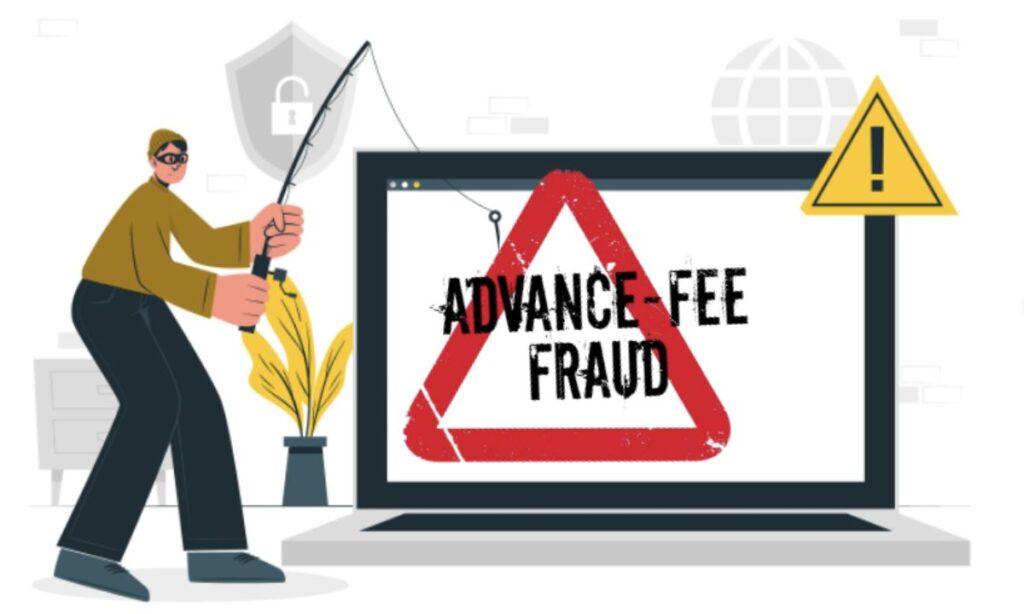Financial scams are becoming more dangerous every day. Criminals are getting smarter and finding new ways to trick innocent people. The Phongsavanh Bank Ltd Advance-Fee Scam is a perfect example of how fraudsters manipulate trust and hope.
Scammers use clever tactics to steal money from unsuspecting victims. They pretend to be official bank representatives. Their goal is simple: make quick money by exploiting people’s financial vulnerabilities.
Understanding the Phongsavanh Bank Ltd Advance-Fee Scam

Advance-fee fraud targets people’s financial hopes and dreams. Criminals create convincing narratives about unexpected financial opportunities. They manipulate emotions to convince victims to send money.
The Phongsavanh Bank Ltd Advance-Fee Scam uses a respected bank’s reputation. Fraudsters carefully craft messages that look completely authentic. They exploit people’s trust in established financial institutions.
These scams prey on individuals’ economic vulnerabilities. People struggling financially become prime targets. Scammers offer seemingly perfect solutions to financial challenges.
How the Scam Works?
Scammers follow a carefully planned strategy to deceive victims. They begin by establishing initial contact through multiple channels. Emails, phone calls, and social media platforms become their hunting grounds.
The fraudulent communication looks professionally designed. Official-looking logos and complex financial language create credibility. Victims are presented with incredibly attractive financial opportunities.
Scammers create pressure through time-sensitive offers. They emphasize potential losses if immediate action isn’t taken. This psychological manipulation pushes victims towards hasty decisions.
Why the Phongsavanh Bank Ltd Name Is Used?
Established bank names provide immediate credibility to scammers. Phongsavanh Bank Ltd represents a legitimate financial institution. Using their reputation makes fraudulent offers seem more trustworthy.
Victims are less likely to question communications from recognized banks. The sense of institutional authenticity reduces natural skepticism. Criminals exploit this psychological vulnerability expertly.
Detailed research helps scammers mimic official communication styles. They study bank brochures, websites, and communication patterns. This allows them to create nearly undetectable fraudulent messages.
Who Are the Victims?
Scammers target diverse demographic groups strategically. Small business owners seeking financial solutions are prime targets. They desperately need funding and might overlook warning signs.
Elderly individuals often lack technological awareness about modern scams. Their limited digital literacy makes them vulnerable to sophisticated fraud techniques. Retirement savings become attractive targets.
Low-income families represent another significant victim group. Financial desperation makes complex loan offers seem like lifelines. Hope overrides rational risk assessment in these scenarios.
Identifying Red Flags in Advance-Fee Scams

Unsolicited financial offers always raise serious concerns. Legitimate banks never randomly contact potential customers with loan proposals. Unexpected communication signals potential fraud.
Grammatical errors and unprofessional language indicate scam attempts. Official bank communications maintain strict professional standards. Poor writing suggests fraudulent origins.
Requests for upfront payments are massive warning signs. Authentic financial institutions never demand advance fees for services. Any payment requirement should trigger immediate suspicion.
Read This Blog: Key Glock Height, Weight, and Body Measurements: The Complete Profile of a Rap Phenomenon
The Legal Implications of the Scam
Advance-fee fraud constitutes a serious criminal offense globally. Law enforcement agencies take these crimes extremely seriously. International cooperation helps track sophisticated criminal networks.
Prosecution becomes challenging due to cross-border operations. Digital technologies enable criminals to operate from multiple locations. Jurisdictional limitations complicate legal proceedings.
Victims face significant emotional and financial challenges. Legal systems struggle to provide comprehensive support. Recovery becomes complex and emotionally draining.
Steps to Protect Yourself
Always verify financial offers through multiple official channels. Contact banks directly using verified contact information. Never trust unsolicited communication completely.
Protect personal and financial information rigorously. Use strong, unique passwords for all accounts. Enable two-factor authentication wherever possible.
Education remains the most powerful protection mechanism. Stay informed about the latest scam techniques. Share knowledge within your community to prevent fraud.
What to Do If You’ve Been Scammed?

Immediate action becomes critical after discovering a scam. Stop all communication with fraudulent contacts immediately. Preserve all evidence of fraudulent interactions.
Report the incident to local law enforcement agencies. Contact your bank and financial institutions promptly. File comprehensive reports with consumer protection organizations.
Monitor your financial accounts and credit reports carefully. Look for any unauthorized transactions or suspicious activities. Quick response can minimize potential financial damage.
Impact of Advance-Fee Scams on Victims
Financial losses represent just one aspect of scam impacts. Emotional trauma often creates long-lasting psychological consequences. Victims experience significant trust and confidence erosion.
Many individuals feel intense shame and embarrassment. These emotions prevent them from seeking help or reporting crimes. Social stigma compounds their suffering.
Community trust in financial systems gets systematically undermined. Each successful scam reduces overall confidence in legitimate institutions. Collective psychological damage becomes substantial.
How Financial Institutions Are Addressing the Issue?
Banks invest heavily in advanced security technologies. Sophisticated fraud detection systems get continuously upgraded. Machine learning helps identify potential scam patterns.
Public awareness campaigns educate potential victims. Financial institutions collaborate with law enforcement agencies. Transparent communication becomes a critical prevention strategy.
Technology enables more proactive fraud prevention approaches. Real-time monitoring and instant alert systems protect customers. Continuous innovation fights evolving criminal techniques.
Also Read This Blog: How r Fauxmoi Is Changing the Way We Discuss Celebrities?
The Role of Technology in Scams

Digital technologies create both opportunities and challenges. Scammers leverage advanced communication platforms expertly. Anonymous digital payment methods facilitate their operations.
Cybersecurity experts develop increasingly sophisticated protection mechanisms. Artificial intelligence helps detect potential fraudulent activities. Technology becomes a double-edged sword.
Individual awareness and technological literacy are crucial. Understanding potential risks helps prevent successful scam attempts. Continuous learning protects against emerging threats.
Frequently Asked Questions
How can I recognize an advance-fee scam?
Watch for unsolicited offers, upfront payment requests, and high-pressure tactics.
What immediate steps should I take if scammed?
Stop communication, report to authorities, and monitor financial accounts.
Can scam victims recover lost money?
Recovery is challenging but possible through legal and financial channels.
Why do scammers target specific groups?
Some groups are more vulnerable due to limited technological understanding.
How can I protect my personal information?
Use strong passwords, avoid sharing sensitive details, and verify communications.
Conclusion
The Phongsavanh Bank Ltd Advance-Fee Scam demonstrates the complexity of modern financial fraud. Awareness, education, and vigilance remain our strongest defenses.
Protecting yourself requires constant learning and skepticism. Trust your instincts and verify every financial opportunity. Together, we can combat these sophisticated criminal strategies.
Tech innovator and digital explorer Ellia leads TechSloby, bringing cutting-edge insights to fellow enthusiasts. With a passion for demystifying complex tech concepts, she bridges the gap between innovation and understanding.



